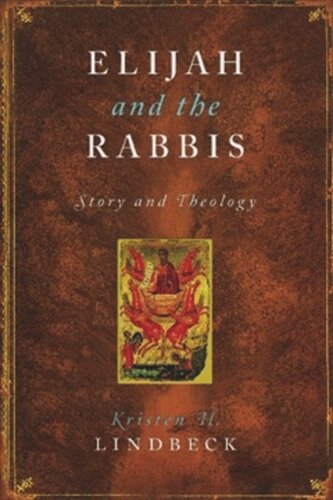

Most ebook files are in PDF format, so you can easily read them using various software such as Foxit Reader or directly on the Google Chrome browser.
Some ebook files are released by publishers in other formats such as .awz, .mobi, .epub, .fb2, etc. You may need to install specific software to read these formats on mobile/PC, such as Calibre.
Please read the tutorial at this link: https://ebookbell.com/faq
We offer FREE conversion to the popular formats you request; however, this may take some time. Therefore, right after payment, please email us, and we will try to provide the service as quickly as possible.
For some exceptional file formats or broken links (if any), please refrain from opening any disputes. Instead, email us first, and we will try to assist within a maximum of 6 hours.
EbookBell Team

5.0
20 reviewsThrough an innovative synthesis of narrative critique, oral-formulaic study, folkloric research, and literary analysis, Kristen H. Lindbeck reads all the Elijah narratives in the Babylonian Talmud and details the rise of a distinct, quasi-angelic figure who takes pleasure in ordinary interaction.
During the Talmudic period of 50-500 C.E., Elijah developed into a recognizable character quite different from the Elijah of the Bible. The Elijah of the Talmud dispenses wisdom, advice, and, like the Elijah of Jewish folklore, helps people directly, even with material gifts. Lindbeck highlights particular features of the Elijah stories, allowing them to be grouped into generic categories and considered alongside Rabbinic literary motifs and non-Jewish traditions of late antiquity. She compares Elijah in the Babylonian Talmud to a range of charactersangels, rabbis, wonder-workers, the angel of death, Christian saints, and even the Greek god Hermes. She concludes with a survey of Elijah's diverse roles from medieval times to today, throwing into brilliant relief the complex relationship between ancient Elijah traditions and later folktales and liturgy that show Elijah bringing benefits and blessings, appearing at circumcisions and Passover, and visiting households after the Sabbath.